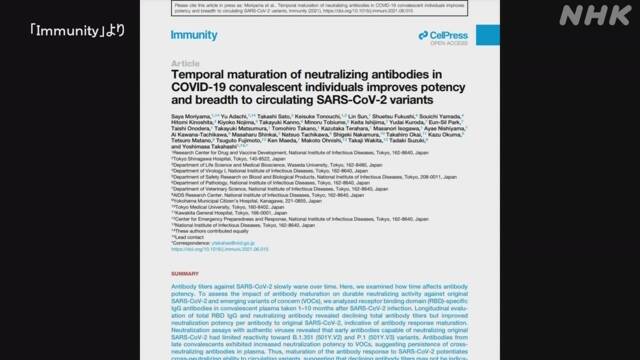A group such as the National Institute of Infectious Diseases investigated the antibodies of people who recovered from infection with the new coronavirus over a long period of time, and found that the longer the recovery period, the more antibodies that are effective in preventing infection. I understand.
The group says that it will be useful for vaccine development if the mechanism for producing high-quality antibodies can be elucidated.
This was announced by a group of director Yoshiki Takahashi of the National Institute of Infectious Diseases Therapeutic and Vaccine Development Research Center.
The group received regular blood donations from 30 people who had recovered from infection with the new coronavirus by November last year, and investigated how the effect of the antibody changes over time by experiments using cultured cells. It was.
As a result, the "gamma strain" of the mutant virus confirmed in Brazil to prevent the virus from infecting cells with the antibody more than half a year later than the antibody contained in the blood up to about 3 months after the onset. Was 5.9 times higher on average, and the "beta strain" confirmed in South Africa was 5.1 times higher on average.
The group says that it is an experiment with cells to the last, and that it is possible that more quality antibodies will be produced and resistance to mutant viruses will increase as time passes after infection.
Director Takahashi said, "If we can elucidate the mechanism by which high-quality antibodies are produced, we may be able to apply it to the development of vaccines that are effective against various mutant viruses."

